
Acts 26:24-32 Bible Teaching
Shawn's teaching highlights Paul's encounter with Festus and King Agrippa II, emphasizing skepticism faced, the need for spiritual discernment, and the challenge of worldly ties.

Shawn's teaching highlights Paul's encounter with Festus and King Agrippa II, emphasizing skepticism faced, the need for spiritual discernment, and the challenge of worldly ties.

Shawn highlights unique faith journeys, warns against relying solely on dramatic conversions, stresses love and humility, and emphasizes Paul's transformative mission and Christ's resurrection.

The teaching links Revelation's woes to Roman siege, interpreting locusts as Roman cavalry. It explores idolatry's role in Jerusalem's fall, using historical and scriptural insights.
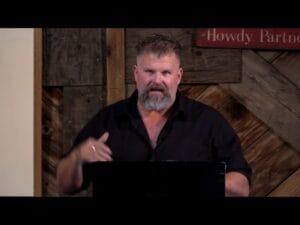
Shawn interprets Revelation 9's locusts as symbolic of Roman armies, not demonic creatures, using historical and astrological symbolism to link them to the Roman siege of Jerusalem.
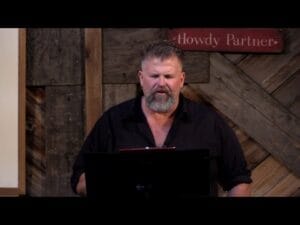
Paul emphasizes hope in God's promises, faith in Christ's return, and love as evidence of truth. Challenges arise from eschatological errors and clinging to old beliefs.

Shawn's teaching interprets Revelation's apocalyptic imagery as symbolic of political power shifts, rooted in Hebraic tradition, focusing on Rome's historical impact and biblical prophecy.
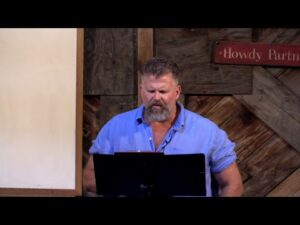
Shawn's teaching deconstructs a religious gathering with prayer, music, and a study of Acts 25, focusing on Paul's trial before Festus, his appeal to Caesar, and his defense of Jesus' resurrection.

Shawn's teaching highlights human freedom as God's gift, enabling free will in life choices, love, and worship. Adam and Eve's story illustrates this freedom and responsibility.

Shawn's teaching highlights the importance of free will as God's gift, allowing humans to choose love, worship, and faith freely, impacting salvation and personal responsibility.
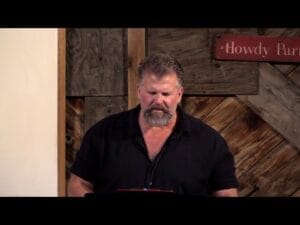
Shawn's teachings link Revelation 8 to Exodus plagues, symbolizing sieges and divine judgment. He interprets biblical imagery as metaphors for historical events like Jerusalem's fall.
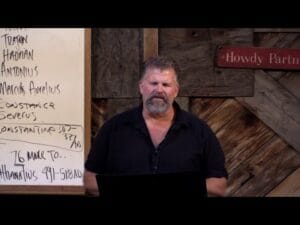
Shawn teaches that life's trials, like Paul's imprisonment, serve a divine purpose. Trusting God and having an eternal perspective can reveal greater meaning in hardships.

Shawn's teaching reinterprets the Parousia, suggesting Christ's second coming occurred between A.D. 66-70, aligning with historical events and biblical prophecy, emphasizing a prolonged divine presence.
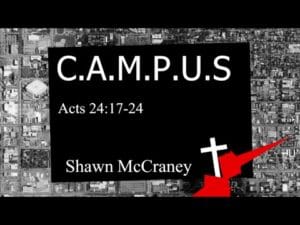
Paul's ministry focused on voluntary charity for believers, prioritizing spiritual growth over material aid. Emphasized discerning giving, Gospel sharing, and confronting sin.
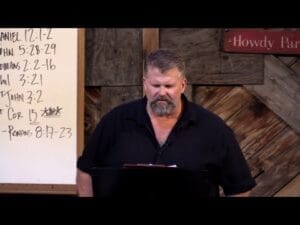
Shawn's teaching focuses on Paul's defense before Felix, emphasizing his adherence to Jewish law, belief in resurrection, and identity as a follower of "the Way," while affirming Jesus' fulfillment of the law.

The teaching interprets Revelation 8, focusing on Greek terms, historical context, and prophetic significance. It links biblical events to historical occurrences, emphasizing divine presence and judgment through natural phenomena, and encourages reverence towards God.
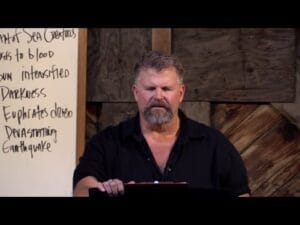
Shawn's teaching on Revelation 7 highlights a vision of a diverse multitude before God's throne, purified by Jesus' blood, emerging from tribulation, serving joyfully in heaven.

Jews conspired to kill Paul; nephew warned authorities. Paul was escorted to Felix with military protection. Accused by Ananias and Tertullus; Paul defended himself.

Shawn's teaching on Revelation 7 explores the symbolic sealing of 144,000 from Israel's tribes, the inclusive vision of salvation for all nations, and contrasts views on salvation.

True followers of Jesus embody love, patience, and tolerance, contrasting with historical religious violence. Paul exemplifies reason and understanding, prioritizing sincerity over doctrine.
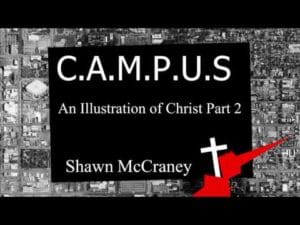
Script currently unavailable.